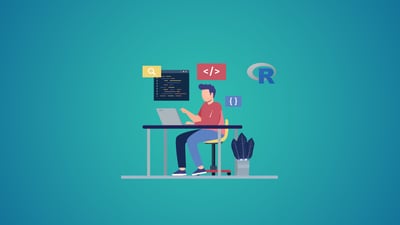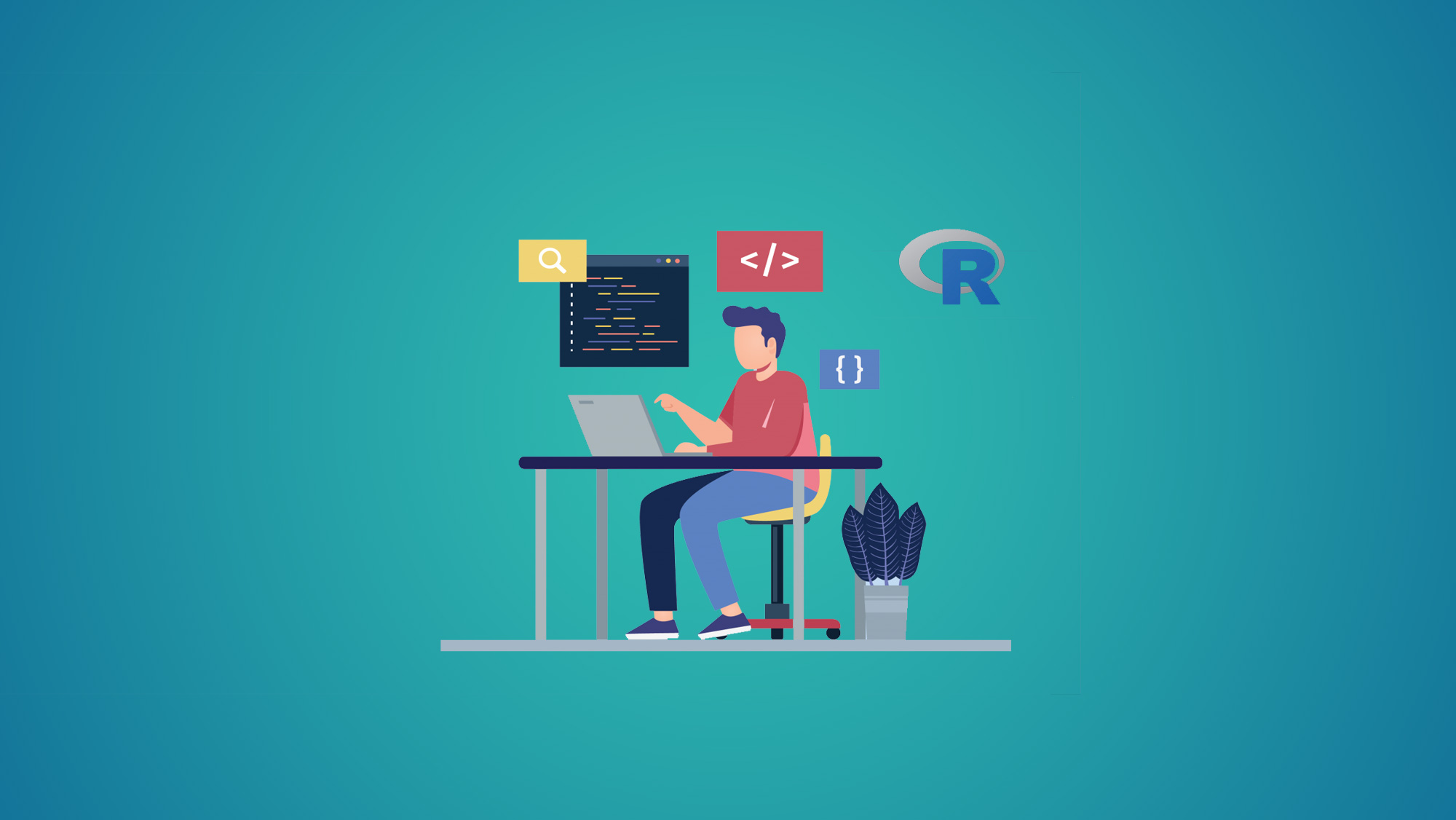Everything You Need To Know About R Programming Training
Introduction:
R programming has emerged as a popular language for data analysis, statistical modeling, and visualization. To harness the power of R and leverage its capabilities, comprehensive training is essential. In this blog, we will explore everything you need to know about R programming training. From understanding the importance of R programming to the training modules and skills gained, this guide will provide valuable insights into the world of R programming training.
What is R programming training?
Why is R programming training important?
Why pursue R programming training?
Prerequisites for R programming training:
Who can do R programming training:
What is R programming training?
R programming training refers to the educational programs, courses, or workshops designed to teach individuals the fundamentals and advanced concepts of the R programming language. R programming training typically covers topics such as data manipulation, statistical analysis, data visualization, and machine learning using R. The training aims to equip participants with the skills and knowledge needed to effectively use R for data analysis, modeling, and visualization tasks. It may include hands-on exercises, real-world projects, and practical examples to enhance the learning experience.
Why is R programming training important?
R programming training is important for several reasons:
- Data Analysis and Statistics: R is a powerful language for data analysis and statistical modeling. Training in R programming equips individuals with the skills to efficiently manipulate and analyze data, perform statistical tests, and build predictive models. This knowledge is valuable for professionals in fields such as data science, research, finance, and healthcare.
- Widely Used in Industry and Academia: R is extensively used in both industry and academia for data analysis and research. By gaining proficiency in R programming, individuals can enhance their career prospects and increase their employability in a variety of domains where data analysis and statistical modeling are essential.

Read More: Demystifying R Programming: Essential Training for Data Enthusiasts |
- Open-Source and Active Community: R is an open-source language, which means it is freely available and supported by a large community of developers and users. R programming training allows individuals to tap into this community for resources, support, and collaboration, thereby expanding their knowledge and network.
- Versatility and Integration: R can integrate with various tools and technologies, making it adaptable to different data sources and workflows. It seamlessly integrates with databases, spreadsheets, and other programming languages, allowing users to leverage its capabilities within existing data ecosystems.
- Data Visualization and Reporting: R offers a wide range of packages and libraries for creating visually appealing and interactive data visualizations. Training in R programming enables individuals to generate insightful charts, graphs, and reports to effectively communicate data findings and insights.
- Machine Learning and Artificial Intelligence: R has robust libraries for machine learning and artificial intelligence, such as caret, mlr, and tensorflow. By gaining proficiency in R programming, individuals can leverage these libraries to build and deploy machine learning models for tasks like classification, regression, clustering, and text analysis.
- Research and Academic Applications: R is widely used in academic research and scientific studies. Training in R programming allows researchers to analyze and interpret data, conduct statistical tests, and generate publication-ready results. It facilitates reproducibility and collaboration within the research community.
- Continuous Learning and Growth: R programming is constantly evolving, with new packages, techniques, and advancements being introduced regularly. By investing in R programming training, individuals can stay updated with the latest developments and expand their knowledge base, fostering continuous learning and professional growth.
Why pursue R programming training?
Pursuing R programming training offers several benefits:
- Enhanced Career Opportunities: R programming skills are in high demand in various industries such as data science, analytics, finance, healthcare, and research. By acquiring R programming skills, you increase your career prospects and open doors to exciting job opportunities.
- Powerful Data Analysis and Visualization: R is a powerful language for data analysis, manipulation, and visualization. With R programming training, you can effectively analyze large datasets, perform statistical analysis, and create visualizations to derive meaningful insights from data.
- Open-Source and Vast Community Support: R is an open-source language with a large and active community of developers and users. Pursuing R programming training allows you to tap into this community for support, resources, and collaboration, providing a valuable network of professionals.
- Integration with Other Tools and Technologies: R can seamlessly integrate with other tools and technologies, including databases, spreadsheets, and programming languages. By learning R, you can leverage its compatibility to work with diverse data sources and integrate it into your existing workflows.
- Machine Learning and Statistical Modeling: R provides a wide range of packages and libraries for machine learning and statistical modeling. Pursuing R programming training equips you with the skills to build and deploy machine learning models, perform regression analysis, and conduct hypothesis testing.
- Reproducible Research: R promotes reproducible research practices through its capabilities for scripting and documentation. With R programming training, you learn how to write code in a structured manner, making your analyses replicable and facilitating collaboration with other researchers.
- Flexibility and Adaptability: R's flexibility allows you to adapt it to your specific needs. Whether you're working on data cleaning, exploratory data analysis, or building complex models, R offers a wide range of packages and functions to support your requirements.
- Continuous Learning and Growth: R is constantly evolving, with new packages and techniques being developed. Pursuing R programming training ensures you stay updated with the latest advancements, enabling you to continuously expand your knowledge and remain competitive in the field.
Prerequisites for R programming training:
While R programming training is designed to accommodate learners of various backgrounds, having a basic understanding of programming concepts and statistical knowledge can be beneficial. Here are some common prerequisites for R programming training:
- Programming Basics: Familiarity with fundamental programming concepts like variables, data types, control structures (loops, conditionals), functions, and basic syntax is helpful for grasping R programming concepts more easily.
- Statistics and Data Analysis: A basic understanding of statistical concepts such as mean, median, standard deviation, hypothesis testing, and probability distributions can provide a solid foundation for working with data in R. Knowledge of common statistical tests and techniques is advantageous.

Read More: From Basics to Brilliance: Master R Programming with Expert Training |
- Mathematics: A basic understanding of mathematics, including algebra and calculus, can be helpful when working with mathematical operations, equations, and functions in R.
- Data Manipulation: Having experience with data manipulation tasks, such as importing and exporting data, cleaning data, handling missing values, and transforming data, can facilitate the learning process in R.
- Statistical Software: Experience with other statistical software packages like SPSS, SAS, or Excel can provide familiarity with data analysis concepts and terminology, making it easier to transfer skills to R.
- Familiarity with Command Line Interface: Some R programming training resources and environments may require interacting with the command line or using the R console. Familiarity with command line basics can be beneficial, but it is not always a strict prerequisite.
Who can do R programming training:
R programming training is suitable for a wide range of individuals who are interested in data analysis, statistical modeling, and programming. Here are some groups of people who can benefit from R programming training:
- Data Analysts: R programming training equips data analysts with the skills to effectively manipulate, analyze, and visualize data. They can leverage R's extensive library of statistical functions and packages to gain insights and make data-driven decisions.
- Data Scientists: R is widely used in the field of data science for tasks such as data cleaning, exploratory data analysis, machine learning, and predictive modeling. Data scientists can enhance their knowledge and proficiency in R through training to leverage its capabilities for advanced analytics.3
- Researchers and Academics: R is prevalent in academic research for statistical analysis, experimental design, and generating publication-ready results. Researchers and academics across various disciplines can benefit from R programming training to enhance their data analysis skills and facilitate reproducible research.
- Business Analysts: R programming training empowers business analysts to perform statistical analysis, forecasting, and data visualization to derive insights and support decision-making processes. They can use R to analyze sales data, customer behavior, market trends, and more.
- Statisticians: R is a popular tool among statisticians for its wide range of statistical functions and packages. R programming training allows statisticians to deepen their understanding of statistical concepts, explore advanced modeling techniques, and implement complex statistical analyses.
- Software Engineers: Software engineers who work on data-centric projects or want to integrate statistical analysis capabilities into their applications can benefit from R programming training. They can learn to develop R-based applications and understand the intricacies of working with data in R.
- Students and Researchers in Data-Related Fields: Students pursuing degrees or conducting research in fields such as data science, statistics, economics, social sciences, and health sciences can acquire valuable skills through R programming training. R's versatility and popularity make it a valuable tool for research and analysis in these domains.
- Professionals Transitioning to Data-Driven Roles: Individuals transitioning to data-driven roles, such as career changers or professionals in non-technical fields, can benefit from R programming training. It provides them with the necessary skills to analyze data, make data-driven decisions, and pursue data-centric career paths.
Conclusion:
R programming training is essential for individuals looking to harness the power of R for data analysis, statistical modeling, and visualization. By understanding the fundamentals, exploring data wrangling and manipulation techniques, mastering exploratory data analysis and statistical modeling, and delving into advanced topics, you can become proficient in R programming. Embrace the comprehensive training options available and embark on a journey to unlock the full potential of R in the realm of data analysis and beyond.
You May Also Like
These Related Stories

From Basics to Brilliance: Master R Programming with Expert Training

Demystifying R Programming: Essential Training for Data Enthusiasts



No Comments Yet
Let us know what you think